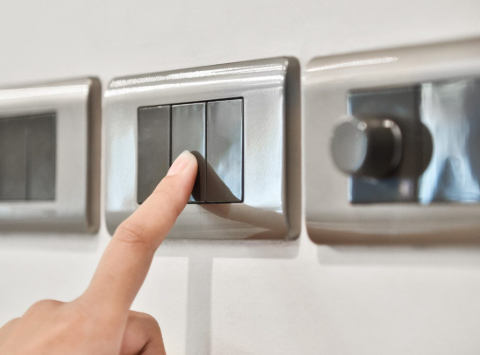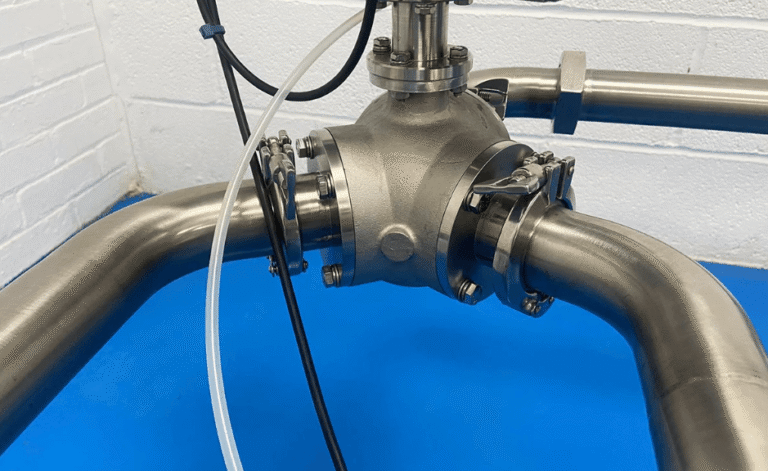What Should You Do First When You Hear a Loud Electrical Pop?
Hearing a sudden loud pop from your electrical system can be an alarming experience. That unmistakable sound—sharp, unexpected, and usually accompanied by a loss of power, flickering lights, or a burning smell—often signals a serious electrical issue. Whether the noise comes from a wall outlet, an appliance, or your circuit breaker panel, it’s never something you should ignore. It may be a sign of a short circuit, a blown breaker, or even an electrical fire hazard in progress.
The first step in any situation involving a loud electrical pop is to remain calm, act quickly, and prioritize safety. In most cases, calling an emergency electrician should be your immediate next step to assess and repair the issue before it escalates into something dangerous.
Identifying Where the Sound Came From
When you hear a loud electrical pop, try to identify where the sound originated, but do not touch or inspect outlets or appliances without first cutting power to the affected area. The sound might come from a wall, a plug, a light fixture, or your main electrical panel. It’s essential not to investigate too closely until you know it’s safe.
If you notice any visible damage—such as smoke, scorch marks, or melted plastic—stay away from the source and avoid using any switches or plugs nearby. These are signs that something serious has gone wrong, and attempting to fix it yourself could result in electric shock or make the situation worse. This is the moment to call an emergency electrician, who has the expertise and equipment to handle high-risk electrical problems safely.
Turn Off the Power If You Can Safely Do So
If you can safely access your circuit breaker panel, consider shutting off the power to the affected area or the entire house. This can help prevent additional damage and reduce the risk of fire. However, if the panel is hot to the touch, smells like burning, or is making unusual noises, do not attempt to switch it off—step away and contact an emergency electrician immediately.
Electricity is not something to take lightly. Even a seemingly minor issue like a loud pop could mean a major fault within your wiring system. The safest option is always to disconnect power and wait for professional help.
Check for Immediate Hazards
After cutting power (if safe), check your surroundings for any signs of fire, smoke, or sparks. Electrical pops can sometimes lead to insulation burning within your walls or small fires starting at outlets. If you see smoke or smell burning plastic, evacuate the home and call emergency services.
In these cases, an emergency electrician will be needed after the immediate danger is handled to repair and inspect your system. They will identify whether the pop was caused by a faulty wire, a damaged breaker, or an overloaded circuit and ensure your home is safe to re-enter.
Don’t Attempt DIY Repairs
It can be tempting to remove the cover of an outlet or reset a tripped breaker after hearing a pop, especially if power is out in part of your home. However, this can be extremely dangerous. An electrical pop often indicates a short circuit or arc fault, both of which can produce dangerously high temperatures.
DIY solutions may worsen the damage or put you at serious risk of electrocution. Instead, call an emergency electrician who can diagnose the issue properly. These professionals are trained to work under hazardous conditions and can test your system with the right tools and techniques.
Understanding the Cause of the Electrical Pop
The source of the pop may be due to a variety of issues. Short circuits are one of the most common causes, occurring when a hot wire comes into contact with a neutral or ground wire. Another possible cause is an overloaded circuit, especially if you’re using multiple high-wattage appliances on the same line.
Worn or frayed wiring, faulty outlets, or defective appliances can also create a popping sound when they fail. A licensed emergency electrician will be able to pinpoint the exact cause and recommend whether wiring should be replaced, breakers need to be upgraded, or other safety improvements are necessary.
Read more: Can Tech Solve the Climate Crisis?
Preventing Future Electrical Problems
Once the issue is resolved, prevention should become your focus. Ask your emergency electrician to inspect the rest of your home’s electrical system to ensure there are no similar risks elsewhere. They may suggest updating older outlets, replacing aluminum wiring, or installing arc fault circuit interrupters (AFCIs) to detect early warning signs of electrical faults.
Routine maintenance can prevent dangerous surprises in the future. You should also avoid overloading outlets, using damaged extension cords, or plugging multiple high-draw devices into one circuit.
Conclusion
A loud electrical pop is never a good sign. It’s a warning that your home’s electrical system may be compromised and potentially dangerous. Your first move should be to shut off power if it’s safe and then call an emergency electrician to investigate. Their knowledge and tools are essential for diagnosing the root cause, preventing further damage, and ensuring your home remains safe.Electrical problems can escalate quickly, and waiting too long to act can have serious consequences. Whether it’s a faulty outlet, a short circuit, or hidden wiring damage, an emergency electrician is your best line of defense. Don’t ignore the sound—take it seriously, and get professional help to keep your home and loved ones safe.






